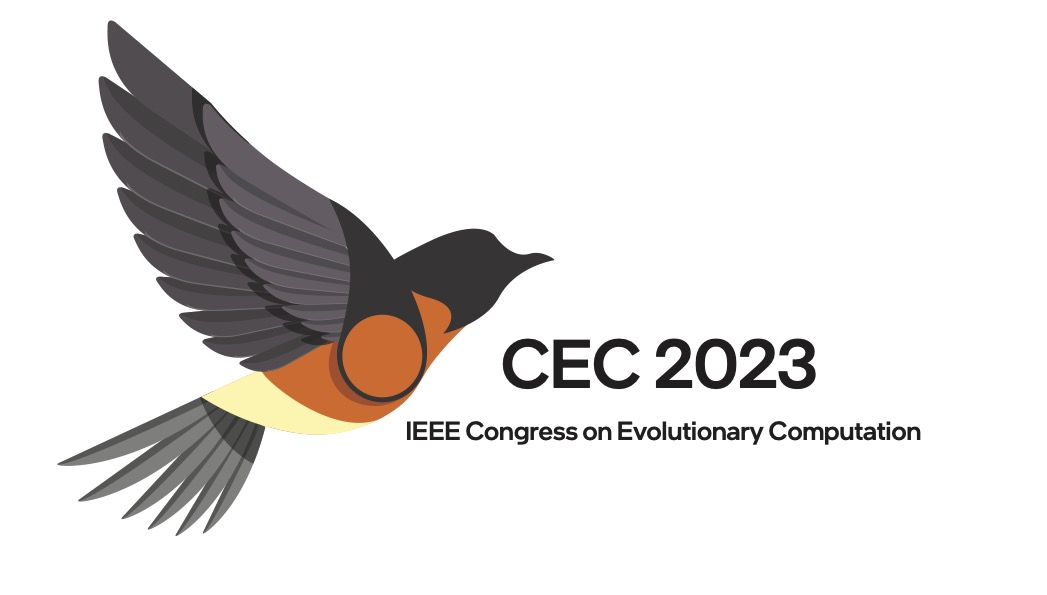
Special session title:
Computational Intelligence and Man-Machine Collaboration (CIMMC)
Special session abstract
Man-Machine Collaboration, Human Rehabilitation and Enhancement are major concerns for current and future industrial development and human quality of life. In this session, we aim to collect original research and review papers on the application of computational intelligence technologies in the field of Human Rehabilitation, Enhancement and Human-Machine Collaboration. The submitted materials shall include original theory, experiment, numerical simulation, or case study to help understand the progress and innovation in this research field.
Special session keywords
Computational Intelligence, Rehabilitation, Human Enhancement, Human-Machine Collaboration
Special session description
In this session, we aim to collect original research and review papers on the application of computational intelligence technologies in the field of Human Rehabilitation, Enhancement and Human-Machine Collaboration. Recent research in rehabilitation and Human Enhancement has led to new approaches which have led to more positive Human-Machine Collaboration effects. Technologies have also played a pivotal role in the transformation of rehabilitation towards quantitative and personalized treatments. Human factored design and human machine interactions are essential consideration in systems. However, using Human-Machine Collaboration system to exploit effective motor assistance while preserving natural, intuitive, smooth, and harmonious motion is still a great challenge in the design and control of system. Moreover, biomechatronic and user-centered design and control solutions are continuously evolving to improve wearability and ergonomics, functionality and effectiveness, as well as acceptability and usability. Novel assessment methods and protocols are currently being developed to analyze Human–Machine interaction from robotic, biomechanical, and physiological perspectives.
With the increasing complexity of human working and living environment, the scale of data generated and the influencing factors are increasing. This can lead to more uncertainty in the control process, and eventually lead to unexpected situations in human-machine collaboration or rehabilitation or affect human augmentation. In this case, new approaches are needed to address new challenges to enable the system to achieve superior performance in more complex environments. Artificial intelligence technology represented by deep learning can find more hidden knowledge and associations in feature extraction and has good data adaptability in adaptation control. In recent years, AI-based human intention recognition, analysis, prediction and control has gradually become a research hotspot and widely used in human rehabilitation, enhancement and human-machine collaboration.
This issue aims to collect original research and review articles on computational intelligence technologies in Human Rehabilitation, Enhancement and Human-Machine Collaboration. The submitted materials shall include original theory, experiment, numerical simulation, or case study to help understand the progress and innovation in this research field.
Potential topics include but are not limited to the following:
· Artificial intelligence (AI) in rehabilitation/ human Enhancement/ human-machine collaboration
· Rehabilitation/ Human Enhancement Systems
· Human-Machine Collaboration
· Human-Computer Interface (HCI)
· Brain-Computer Interface (BCI)
· Intelligent perception/sensor technology
· Behaviour detection and identification
· Body Sensor Networks (BSN)
· Internet of Medical Things (IoMT)
· Biomechanical analysis
· Exoskeleton robotics
· Wearable/assistive Robotics
· Virtual Reality (VR) or Augmented Reality (AR) exercises for rehabilitation
· Edge computing for human care
· Human factor design and ergonomics
· Computational Intelligence and Man-Machine Collaboration in Metaverse
Paper Submission
https://2023.ieee-cec.org/paper-submission/
Registration
https://2023.ieee-cec.org/registration/
Important Dates
· Paper Submission January 13th, 2023 January 27th, 2023
· Paper Reviews March 3rd, 2023 March 17th, 2023
· Paper Re-submissions March 24th, 2023 April 7th, 2023
· Paper Final Notifications March 31st, 2023 April 14th, 2023
· Print-Ready Manuscripts April 15th, 2023 April 29th, 2023
Organisers:
· Leo Chen, Newcastle University, UK, leo.chen@ieee.org
· He Ye, Chongqing University, China, h1166@cqu.edu.cn
· Qi Shuai, Chongqing University, China, qishuai@cqu.edu.cn
· Don McGlinchey, Glasgow Caledonian University, UK, d.mcglinchey@gcu.ac.uk
· Ibrahim Kucukdemiral, Glasgow Caledonian University, UK, Ibrahim.Kucukdemiral@gcu.ac.uk
The link of Special Session on Computational Intelligence and Man-Machine Collaboration (CIMMC)
http://slmt.cqu.edu.cn/info/10447/89090.htm
IEEE CEC 2023 is a world-class conference that brings together researchers and practitioners in the field of evolutionary computation and computational intelligence from around the globe. The conference program includes plenary lectures, regular and special sessions, tutorials, competitions, workshops and panel discussions.
The CEC 2023 will be held at the Swissôtel Chicago, in July of 2023: Tutorials on July 2nd and on July 3rd-5th, we will have the conference talks, plenary talks, workshops, competitions, and so, so much more!! Including a wonderful banquette onboard the Odyssey ship, on the evening of July 4th, watch 4th of July fireworks over the Chicago skyline (see Venue and City Information).
